Eric Pollard produced Season.
Season.
"Season Eqpt." is a life project that Eric Pollard started from scratch after throwing away his reputation as a LINE rider for 18 years. Why? (Part 2) of an interview approaching (why) and how (how). Eric talked about various things while showing us around the Season Eqpt. office in Mt. Hood, Oregon, USA. This is the first time in the history of Japanese freeskiing that we have so deeply introduced Eric Pollard, who has always stood out at the forefront of the freeskiing scene, and his way of life. No, it may be the first time in the world. Let's listen to those words.
Click here part of the interview
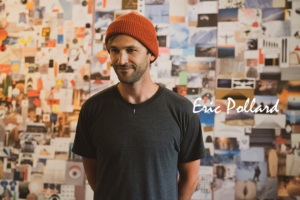

What was the most challenging
―What was the most difficult thing for Eric in this Season. project?
Eric: I learned a lot from creating Season.
I knew starting a business wasn't easy. I think the most challenging part was the combination of several things. Communication was difficult for me. Times have changed, and so has the way in which information is communicated to consumers. I know about old school magazines and films, but I'm surprisingly ignorant about social media (laughs).
I wanted to express my sincere gratitude to LINE, so it was difficult to say that I would suddenly quit LINE. Because I love LINE.
My career as a professional athlete on LINE was coming to an end, but as I moved into a new role, I spent a year long thanking LINE on Instagram as part of my campaign. It was difficult. This is because information is always exposed to the risk of going it alone.
―That sounds like Eric.
I'm sure you got a message full of compassion and respect. Eric: For Season., it was difficult to condense our beliefs and transmit them through various media.
It's harder than I thought to keep doing this consistently. Both myself and Austin had to cut off the momentum of LINE and NITRO, both of which we have been riding for a long time. So I had to do a standing jump without the so-called run-up, starting from a place where there was no momentum. This was hard again. From a business point of view, me and Austin were pretty successful and had a lot of momentum, but we stopped and restarted earlier.
Other than that, in building the brand, like most people in the ski industry, I had to juggle so many different roles. I decide the direction and beliefs of the brand, think about the visual concept of the product, design the product, design the graphics, shoot the product, design the website, and shop. I also made a booth for , and also took a film this year. It was challenging to work with so many fields, but it was rewarding and I learned a lot.
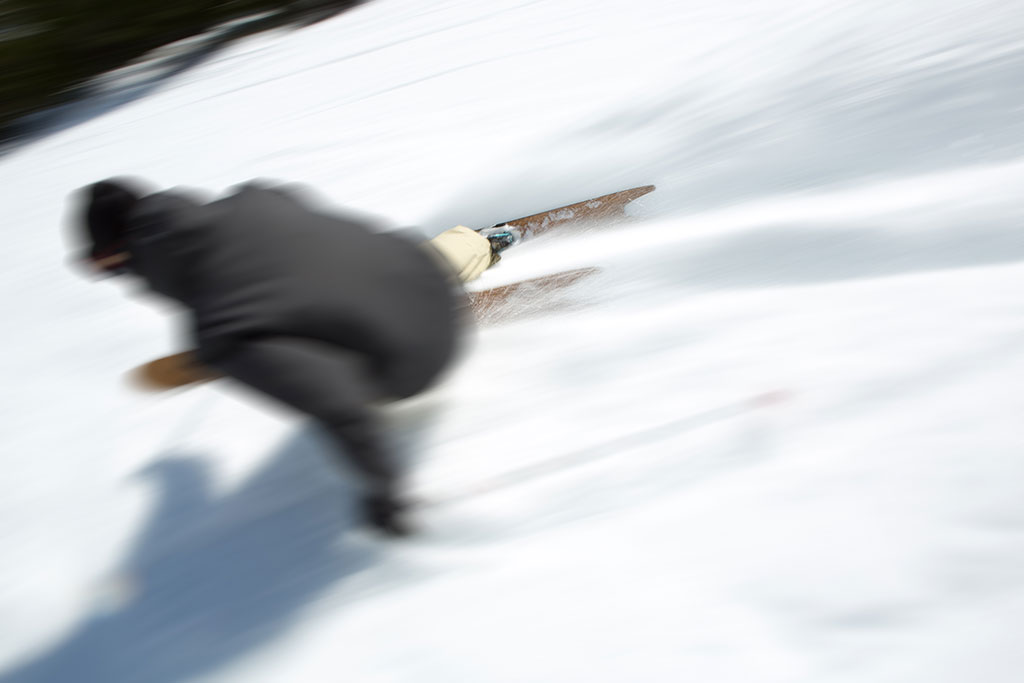
Season. is my baby!
―So Season. is Eric and Austin doing everything?
Eric: Oh, almost yes.
There are two people involved. One engineer and the other taking care of everything else. But I have to do most of it by myself, so it's really "My baby" Season. It's very challenging and hard, but it's rewarding enough. And that's what I wanted to do. I was a little worried about how things would turn out. I felt like I would burn out if I pursued each one in depth, like riding only, product design only, artwork only, filming only, and so on. It's fresh and a nice change.
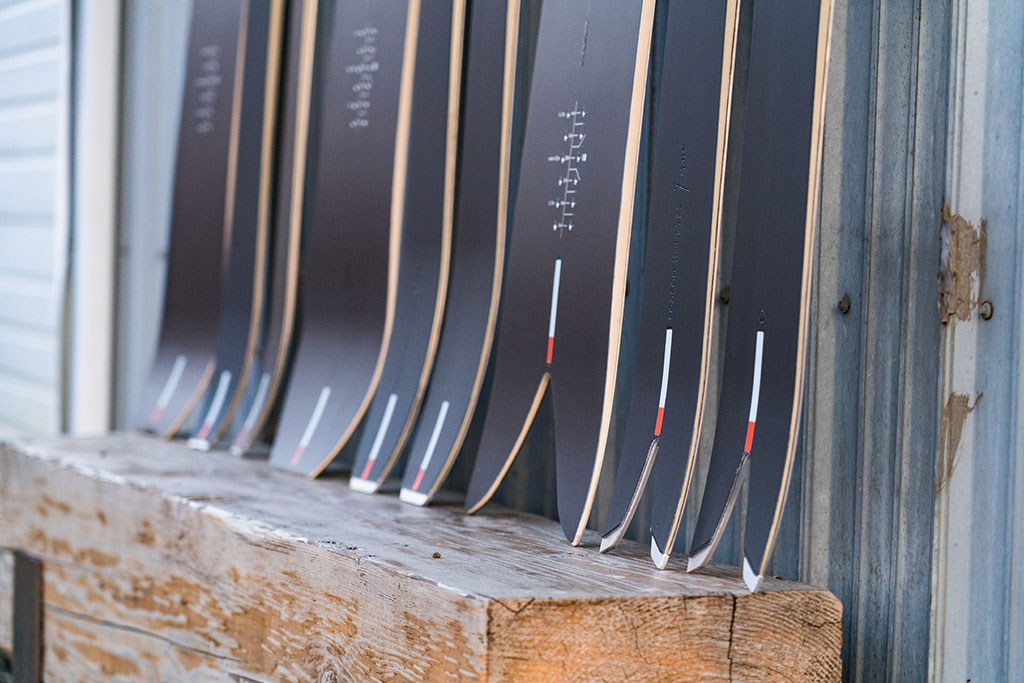
―What do you think makes Season. special?
Eric: First of all, I have a lot of respect for brands. I like all the different brands created by different people, and I think all of them are important. I don't just listen to folk, hip-hop, classical, rock, etc., but I like to listen to a little bit of all kinds of music. I think that when a brand is valued by people in that way, it will become something like a genre of music.
It's good to have different ways of looking at things and different approaches. Because I think a brand comes from the culture that a person has. I've been in this industry for a long time so maybe that's why I feel that way. I don't think our Season skis and snowboards are particularly innovative, technically very different from other brands' skis and snowboards.
What makes our brand unique... Especially in skiing, the products are all things I have developed from where I get the idea. This idea has been around for 25 years and no one has made a product based on an idea that has been fermented for that long.
As a skier, I got my ideas while working on development at LINE for a long time, and refined them. Every year we revisit the concept to see if the design of this board is too specialized for a specific condition, if it prevents us from taking advantage of other elements, if it makes the board better. I've returned that feedback.
The goal of that work was to thoroughly understand the elements of the design. So when I designed this ski, I thought a lot about how to keep it simple. This is racing ski, this is freestyle, this is all mountain, this is carving. This is the so-called category.
I wanted to get rid of those categorizations and create a ski that was specific to the type of snow. There are three types: fresh snow, hard snow, and middle, a mix of both fresh and hard. Let's design it so that it can demonstrate the maximum performance with the specs suitable for each condition.
What makes skiing on hard snow comfortable? For example, the waist width must be narrowed, because the edge operation must be precise. I thought about it in terms of snow types.
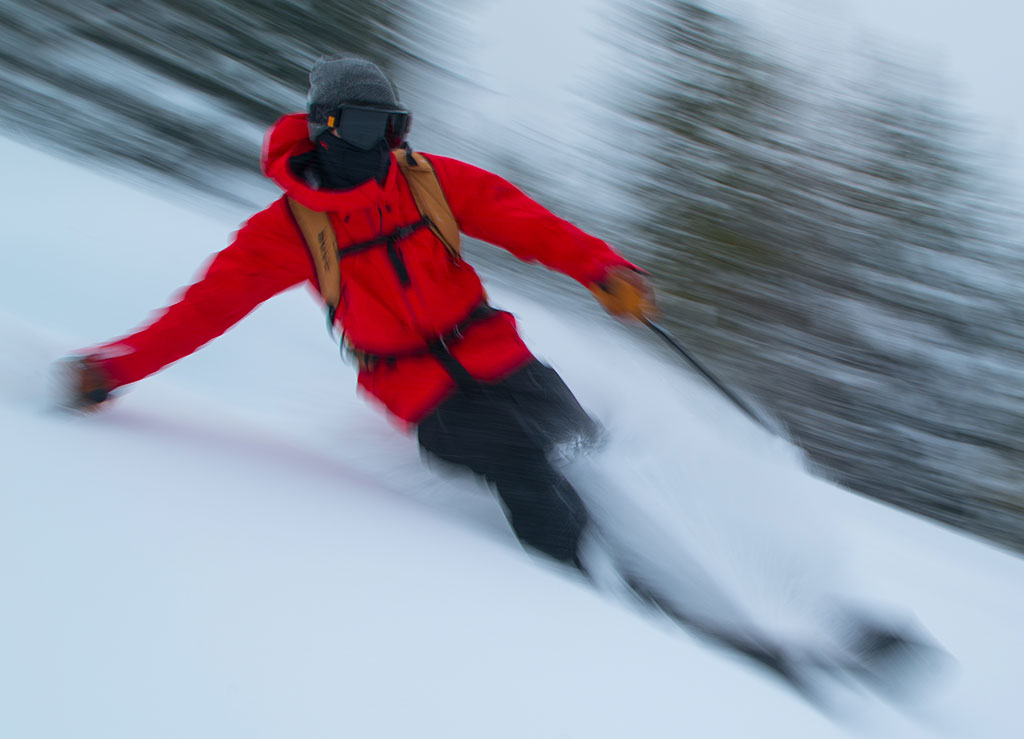
This approach is so different and I would never have been able to do it without my 20 years of experience. I learned so much from it.
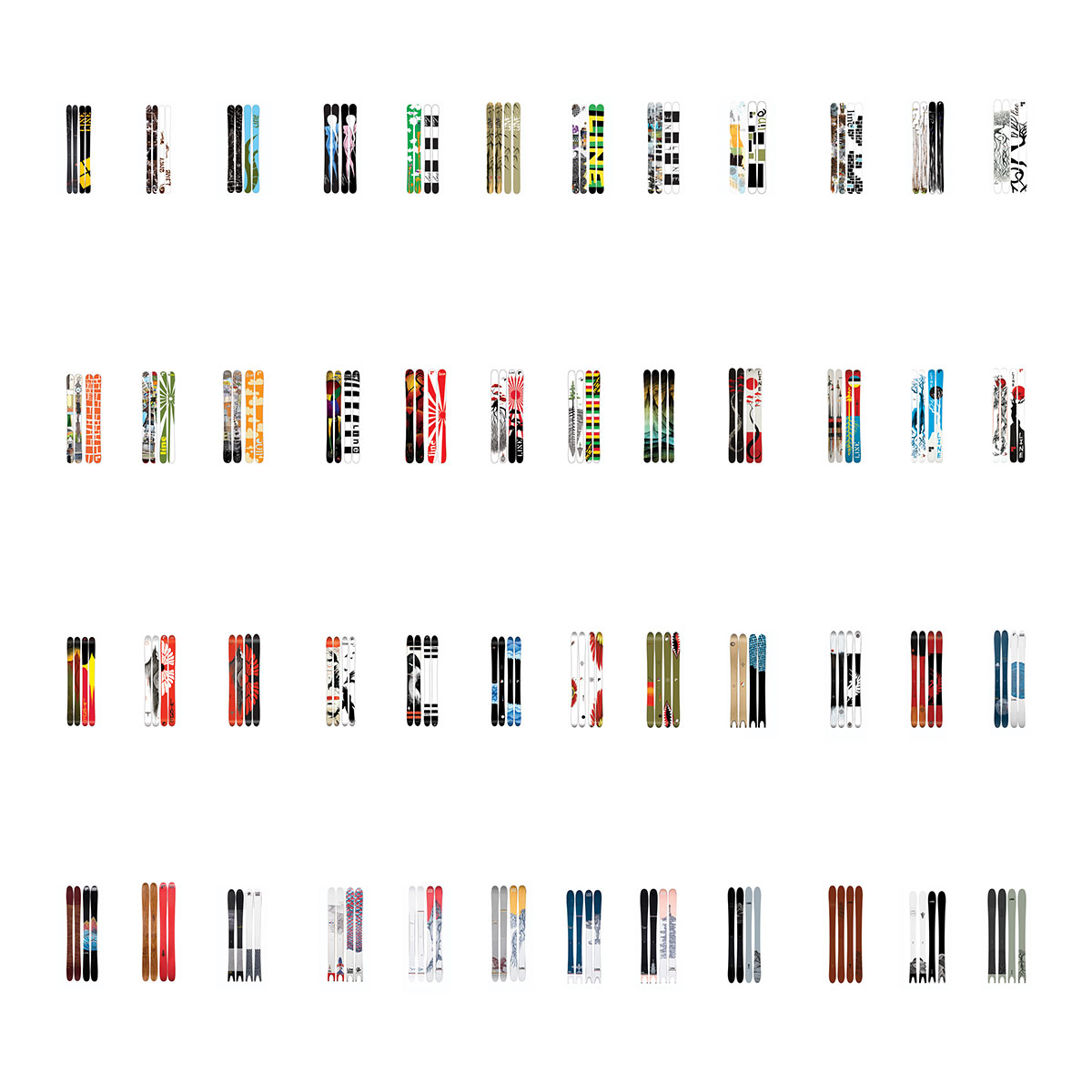
That's why the skis this time are special in the sense that the finely honed sensibilities come alive in the design.
Because we've been developing concepts and ideas for 20 years. So at first glance, it looks like the very first work, but it's actually the first ski, but it's actually developed with great precision. Customized and designed for each snow condition. I think this is what makes Season. so special.
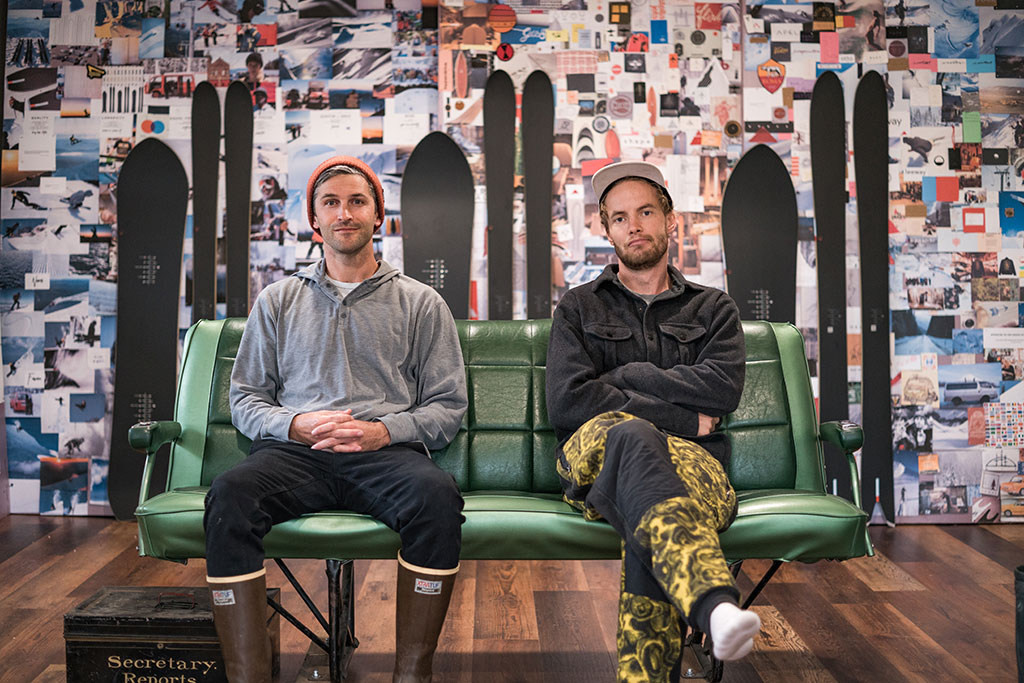
A buddy named Austin Smith
Q: Is Eric's buddy Austin of the same mindset as Eric?
Who is Austin Smith? Eric: Austin, he's a really, really funny guy. He shares a lot of the same ideas with us. So we can work together. Austin also thought he could make the overly complicated product lines of snowboard manufacturers much simpler. Having a lot of models certainly sells well, but you can't delve into each product one by one. So we wanted to offer a more sophisticated product line.
Austin and I share this very "less is more" idea.
On top of that, he thinks a lot about the environment and thinks that being sustainable makes a lot of sense and is something we should do. Austin is really unique, just like you see it on film. I live freely and generously. I live in a truck and travel the world, going on an adventure race one day, snowboarding in the backcountry the next, skiing at a resort two days later, and surfing on the beach the next. Austin has always been real in the best sense of the word. Relatively many people believe that "I am this kind of person", and I apply myself to that. But he is different. He always lives as he is. I admire you
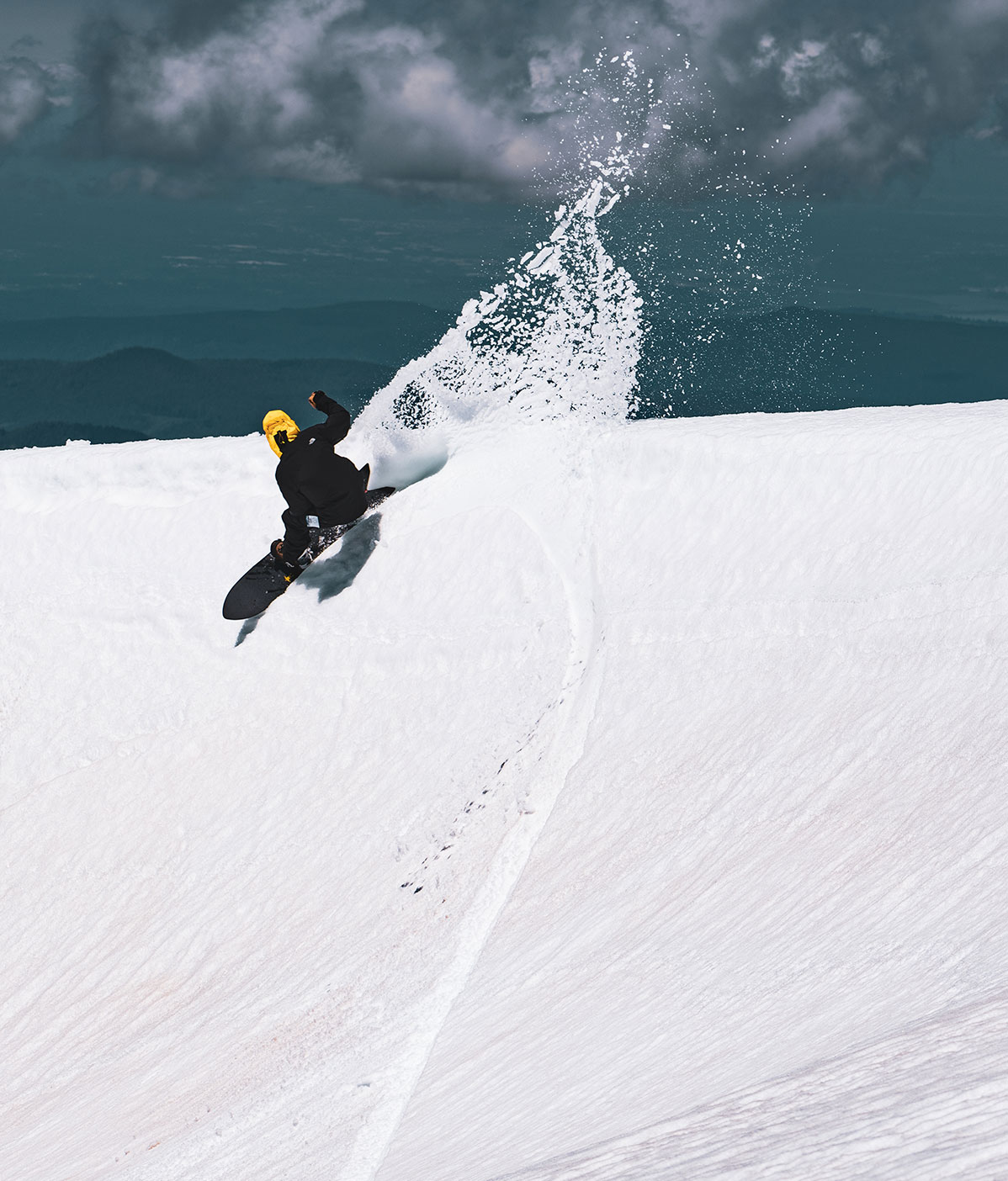
What kind of person am I?
―What kind of person do you think Eric is?
Eric: Yeah, I definitely have some things to say (laughs). I'm surprisingly critical of my own thinking. I try to look at myself as objectively as possible. In America, people like that are called control freaks. If you can't accurately control what you're doing and what's happening, you won't feel refreshed.
That's why I want to have perfect control in ski design. I feel uncomfortable when I'm not controlled, whether it's filming or editing. I want to keep sharing my many opinions.
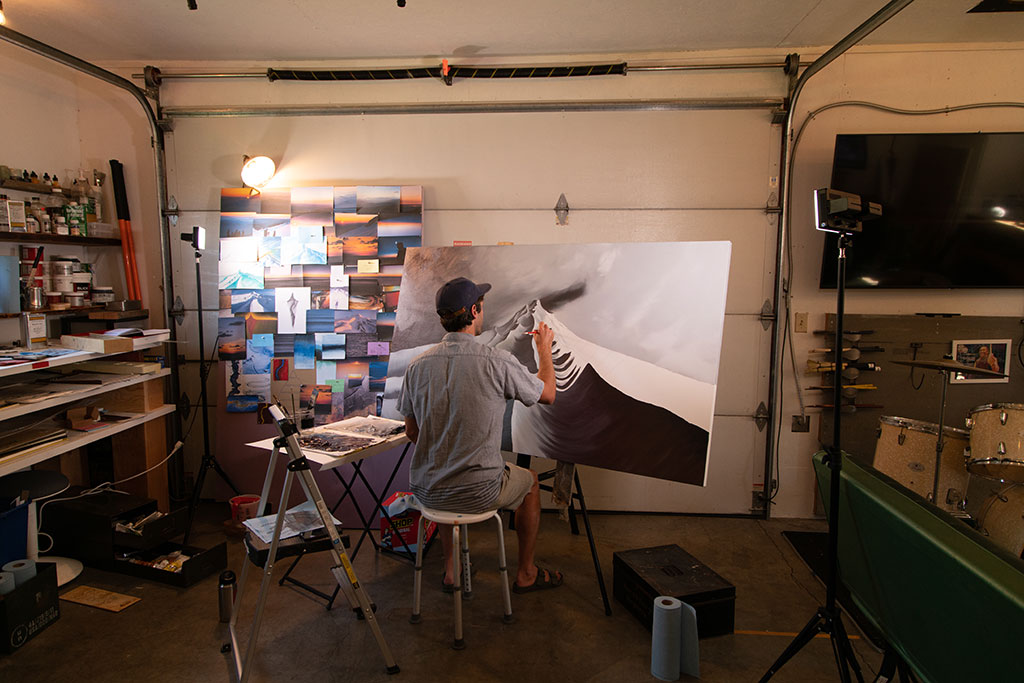
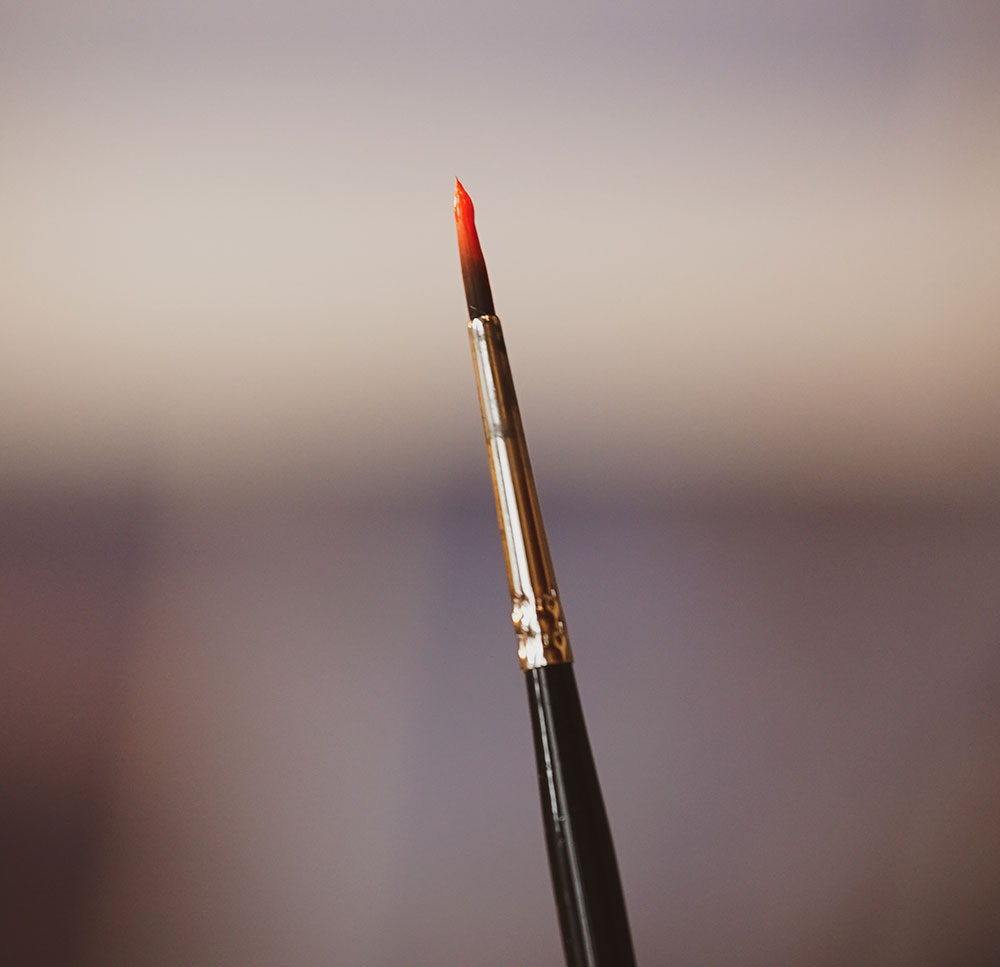
In communication, whether it's video, art, writing, or voice, I'm particular about expressing my thoughts and feelings accurately.
I know it's not all good times, but objectively I have to admit that I have that side (laughs).
―Isn't it a good point for a businessman to be strict? (smile)
Eric: Well, that's what, strangely enough, business doesn't really motivate me. Business is not the highlight of my life.
One of my favorite quotes from a music band is "music is a life, life is not a business." life is not a business I always have ideas. If you develop them, they can become products that sell well, and I think I have the skill set to develop and market products based on those ideas. But I don't want to turn it all into a business.
my life and what inspired me
―What was the biggest influence on Eric's life?
Eric: Wow~ difficult question (laughs). Well, the sport of skiing, and then snowboarding. When I started snowboarding, I was shocked, thinking, "Wow, this is amazing. It's completely different from skiing. Although the movements are similar, it's somehow different." Because there was skiing and snowboarding, I met important friends like family.
And the most influential person in my life is definitely my wife. We have been together for 20 years and have been married for 15 years. She's a professional snowboarder, so we've worked together and grown up together. She's the perfect balance for my life.
I'm always extreme, and when I'm crazy, I tend to go to extremes. She balances me mentally and physically so that I can keep my feet firmly on the ground. She's starting a family together. Happy family with beautiful daughters Isabella 9 and Nova 5. Of course, my parents who have been supporting me since I came here freely in this special world.
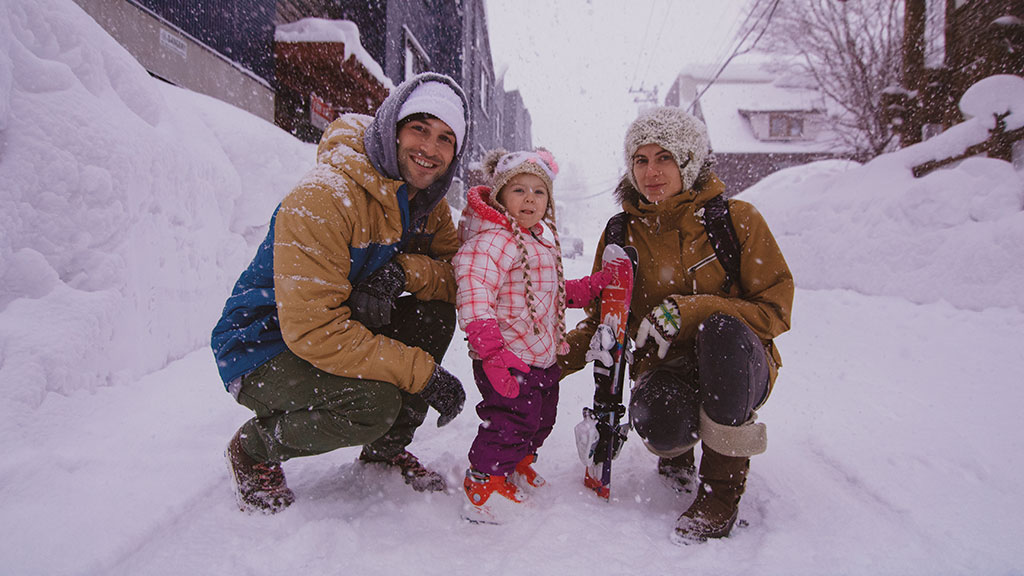
And then there's Jason Levinthal, the creator of LINE, who can't be compared.
I wouldn't be who I am today if I hadn't met Jay. Ever since I became a LINE rider at the age of 15, I've always been creative with him, like an older brother. It was Jay who always tried to understand my extremely forward-thinking ideas and always supported me with all his might. I've done a lot of funny and stupid things (laughs). Of course, there are other filmers, photographers, fellow riders, this snow culture, I can't say enough.
―That's right, Eric's roots are in meeting Jason and the original LINE team.

Click here for an interview with LINE founder Jason Levinthal
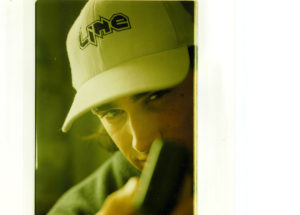
my philosophy
―What is Eric’s life philosophy?
I'm not religious, so I wonder if there is a systematized philosophy such as faith. But having studied a little bit of philosophy and religion, I realized that I could find similar ideas from these regional and culturally strong concepts. To a lesser extent, Christian ideas apply to Buddhism, and Hindu ideas apply to Islam. Judeo-Christianity is the base of most religions in the West, but the beliefs and philosophies in the East seem to be completely different, but they are actually similar.
I find all of this beautiful and at the same time terrifying. Because it drives people who think their interpretation is correct to fight for the facts in that interpretation. I'm not very religious, but I think any faith is interesting and should be cherished.
What I have as my own philosophy is "what is the meaning of our existence" and "how to use our limited time and life".
This is often taken up by philosophers (laughs).
- (laughs) Eric is as good as a philosopher. he is really a thinker. What Eric's way of life and art speaks for itself.
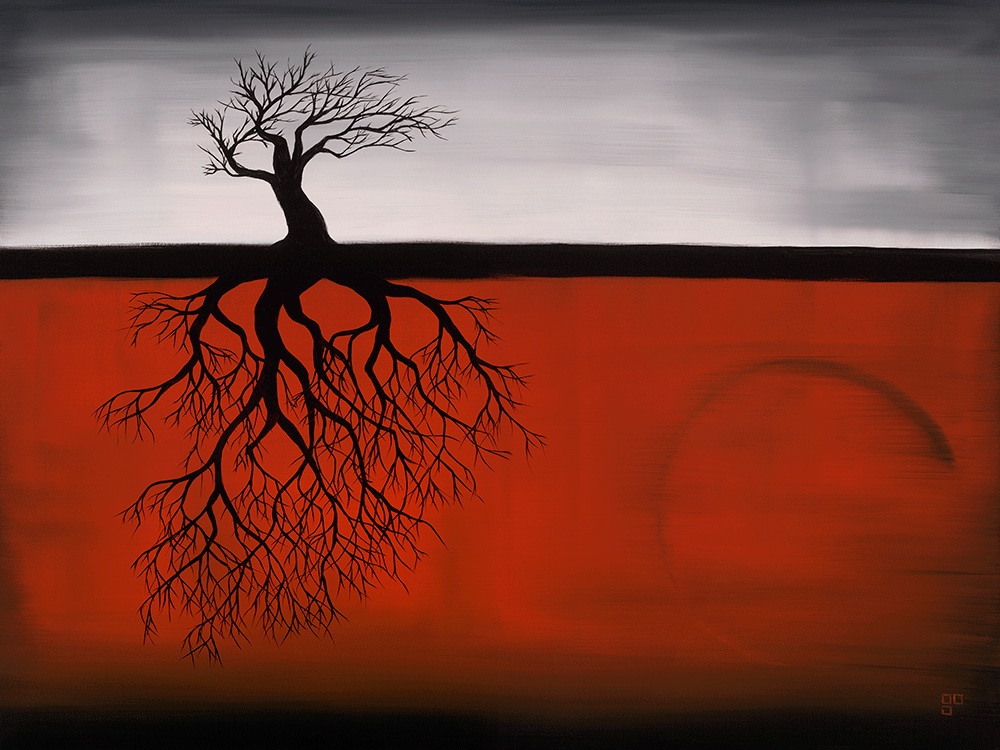
Eric: My father used to tell me the words of Joseph Campbell when I was little.
"Follow your bliss" "Follow your own bliss".
In short, it means to pursue the feeling that what you are doing is right where you are now, and I think that's exactly what it means.
Well, I can't deny that I have a bias because I've lived a happy life. Because I have been successful, my interpretation of this word may be distorted (laughs). But I lived by believing it, just like my father taught me, and like I teach my kids.
For example, let's say you love to draw, but one day you have more responsibilities, a family, and more to protect. I don't know if I can become a painter and make money from my paintings, so I'm thinking of looking for a proper job. But the truth is, that other job can also fail.
Even if you compromise on your life's dreams and goals and make choices that seem safer, they may not work as long as you don't have complete control over them. I worked hard every day at the cost of giving up on what I love, and while I hated what I was doing, I managed to do my best. One day, I was suddenly told that I would be fired, and I was not given any retirement allowance. This actually happened to an acquaintance of mine, but I'd rather do what I love and fail.
Also, there is a film we made with Nimbus called "Drawn from here", which talks about my point of view with quotes from various people, and one of those words talks about the significance of people's existence. There is I'm always looking for that which keeps changing.
There's also the words of the writer who wrote the book "War of Art," which means, "Sooner or later, there will be a backlash." When I try to do something, when I face myself, there are many reasons why I don't do it. "I should stop doing this," he said. But there are many reasons to do it. That's why I struggle. But that's normal, and you can decide who wins, who wants to do it, or who quits.
This book is a must-read for anyone who finds it difficult to pursue their own bliss, especially creators. I know it's good to feel insecure and doubtful.
When something deep inside of you tells you, "Shouldn't you stop doing this?" What is my belief?
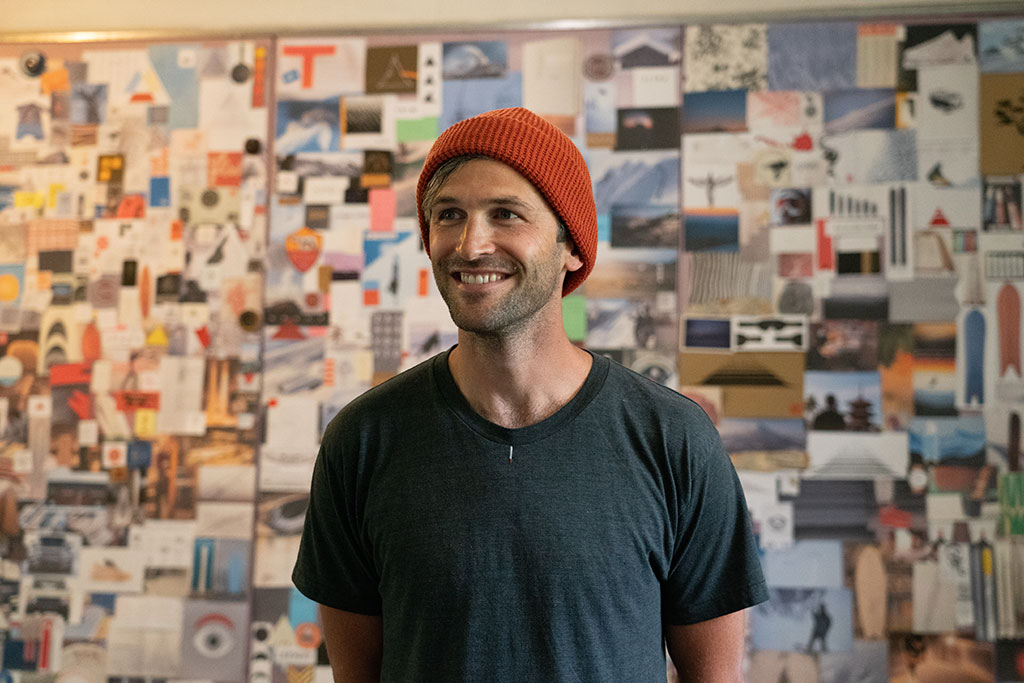
a new chapter is beginning
―What is Eric’s next goal/goal?
Eric: Interesting question. What's interesting is that I'm in the middle of redesigning my life right now. A new chapter is beginning.
I am still exploring how much I will design, how much I will do film work, how much I will ski, how much I will snowboard, how much I will spend with my family, and how I will interact with my family. Teru. I ask myself these questions and think about what I really want to do.
I think it's important to have goals. For example, let's say you want to be a psychologist. I have to know how to be a psychologist. It's not enough to just want to be. We need to think about what exactly we should do. I wonder if this kind of thing is the same in life.
The future you envision should be as vivid and clear as possible. Because that makes it easier to move towards that future.
However, contrary to my expectations, I am still active as a professional skier, so since I can't predict the future like this, my future is quite uncertain. I honestly never thought it would happen. (laughs) I feel like my previous life is still going on like this.
But instead of trying to push the limits of the sport of skiing and evolving the sport itself like I did before, I'm repeating ideas I've had for a long time. Through iteration, we continue to communicate more clearly these once radical concepts and ideas that can now be shared within the snow community.
Now I'm trying to understand how I approach skating. To be honest, I don't really understand it now... [Laughs] Before, I was focused on the goal at hand and everything I did was going towards it. But now, I've changed so much that I'm rethinking what skiing means to me. Is it the same as before, or is it something completely different? How far can I ski? Do you skate for the camera or do it for yourself with friends and family? What brings me the most happiness?
One thing I know for certain is that being the father of my children is a priceless happiness. And I really value my time with my family. For the past year or so, the children have been unable to go to school due to COVID19 (Corona), so I am teaching them at home school. That's another challenge (laughs). I learned for the first time in my life. The concept of "patience". (smile).
Earlier today, I was teaching my sister Isabella how to frontflip on a trampoline. I can't. (Laughs) Children are amazing, because they can quickly absorb anything and become able to do it. Parents are happy to watch their children grow and support them.
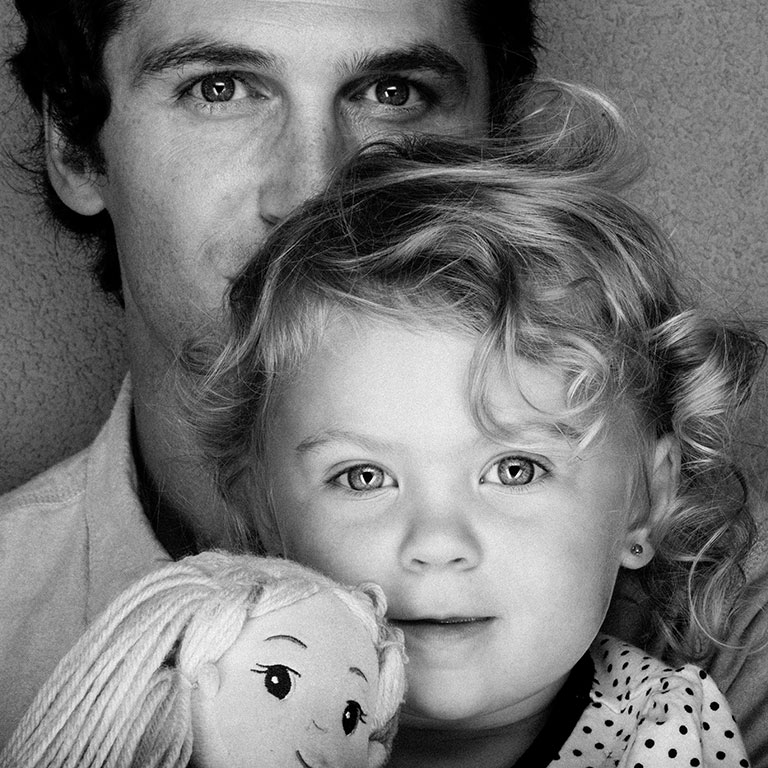
I mean, to answer that question, I don't know what my next goal is yet, but I'm thinking about how much I'm going to skate and how I'm going to skate.
Of course I will continue skiing, and although I originally intended to do so, I am still involved in promotions for some manufacturers. So I'm looking for a way to relate to skiing that feels right for me. After all, I want to skate with my family and friends, and I value that time above all else. I'm also thinking about capturing them well and using them in my work.
Of course, I have a lot of thoughts about the future of season. In fact, there are many things that are moving towards the next season, and I am busy with that every day. I'm looking forward to talking about the future development of Season. at the next opportunity.
- That's right, that makes me happy.
Finally, Eric, do you have a message for everyone in Japan? Please take a selfie! Eric: Understood! Are you ready?
Thank you everyone for supporting Season.! And thank you so much for all your support over the years. Thank you from the bottom of my heart. i love japan Japanese people too. I can't wait to go to Japan again soon!
Special thanks to Eric Pollard
Listener: Chise Nakagawa (CAST)
Interview Recording: May 25, 2021
Interviewer/Editor
Tomoyo NakagawaAt Chise Nakagawa
University, she belonged to the ski club of the Athletic Association and devoted herself to alpine competitions. He later became involved in the production of snowboarding magazines at Yamato Keikokusha, and traveled overseas, including Alaska, Northern Europe, and Europe. In 1999, he partnered with USA's "FREEZE" to launch the free ski magazine "Generation-X". He was running around the world chasing X-Games and filmmaking. He was based in the USA and worked with the LINE team, and has been friends with Eric Pollard since Eric debuted on LINE at the age of 15. He has been away from the front lines of the ski industry for a while, but he is back on the scene with 'STEEP'.

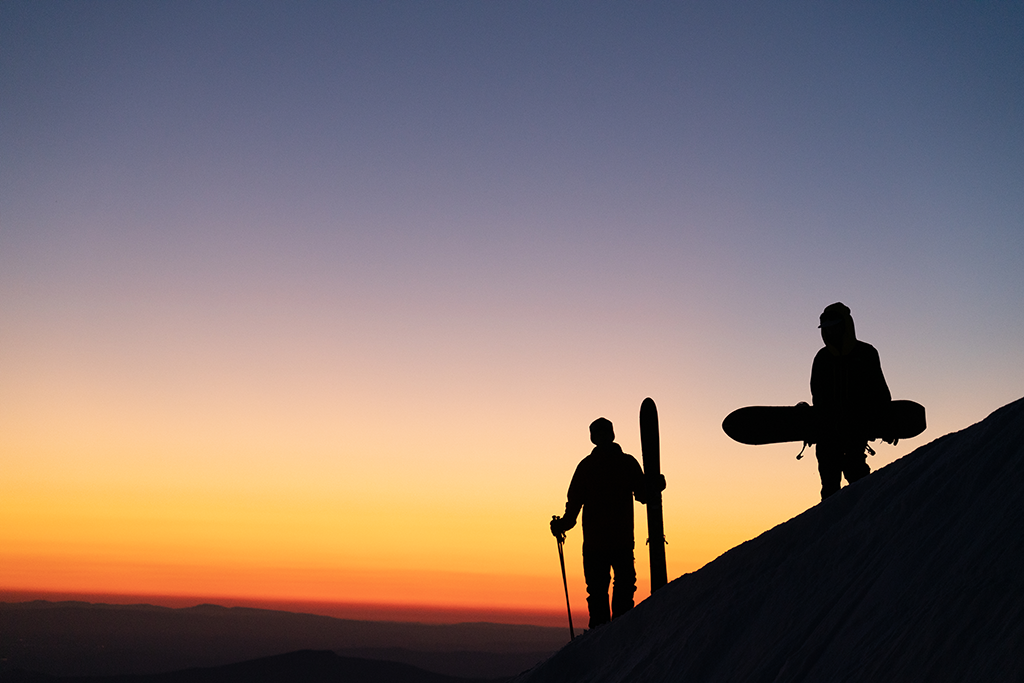
 Season.
Season.